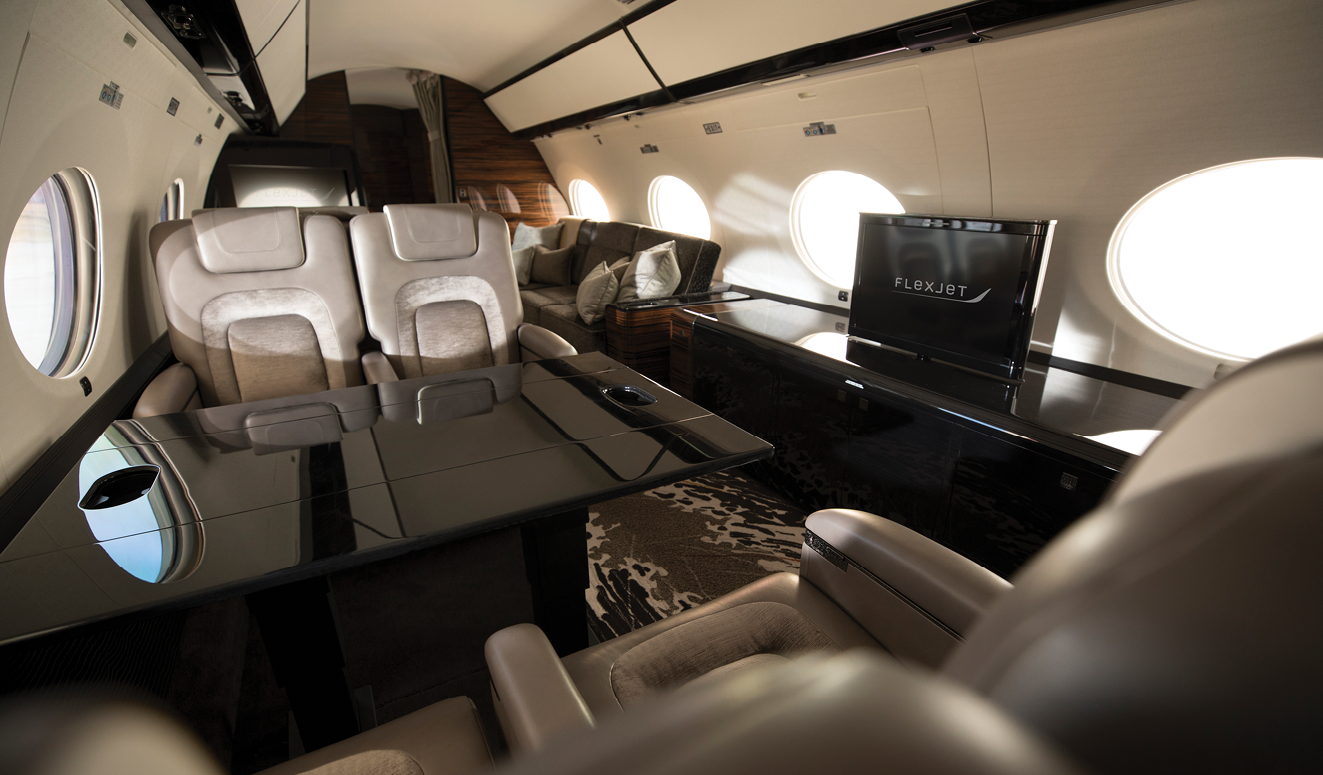- Home
- Media Kit
- Current Issue
- Past Issues
- Ad Specs-Submission
- Ad Print Settings
- Reprints (PDF)
- Photo Specifications (PDF)
- Contact Us

![]()
ONLINE

Moving Forward
Editors’ Note
Michael Silvestro recently became the longest-tenured CEO in the fractional private jet industry after having assumed his current role just before the financial crisis of 2008. While attending Notre Dame, he was one of two non-scholarship football players in his freshman class to make the team which later won the Cotton Bowl. After Notre Dame, Silvestro spent two decades inventing products and founding companies in the footwear and sporting goods industries. Looking for a new challenge, he joined fractional jet company, Flight Options, founded by his Notre Dame roommate Kenn Ricci, and oversaw sales. He turned sales around after the dot-com crash, building the company into the industry’s second-ranked player and leaving only after Ricci sold the company to Raytheon. When Ricci reacquired Flight Options in 2008, he returned to the company, this time as CEO. In 2013, Ricci acquired fractional pioneer Flexjet from Bombardier and Silvestro became CEO of Flexjet as well. He is deeply involved in youth and children’s charities and he and his wife, Mary Lynn, adopted two orphaned Rwandan children in addition to raising their own sons.
Company Brief
Flexjet (flexjet.com) first entered the fractional jet ownership market in 1995. Flexjet offers fractional jet ownership and leasing. Flexjet’s fractional aircraft program is the first in the world to be recognized as achieving the Air Charter Safety Foundation’s Industry Audit Standard and is the first and only company to be honored with 20 FAA Diamond Awards for Excellence. It also upholds an ARG/US Platinum Safety Rating and is IS-BAO compliant at level 2. In 2015, Flexjet introduced Red Label by Flexjet, which features the youngest fleet in the industry, flight crews dedicated to a single aircraft, and the LXi Cabin Collection of interiors. To date, there are more than 30 different interior designs across its Red Label fleet, which includes the Embraer Legacy 450, the Bombardier Challenger 350 and Global Express, the Gulfstream G45 and G650, and the soon to come Aerion AS2 supersonic business jet. In addition, the overall jet collection includes the Embraer Phenom 300 and Bombardier Challenger 300. Flexjet is a member of the Directional Aviation family of companies.

A Flexjet G650 in the air
How has Flexjet’s business evolved and what are the keys to its success?
Flexjet was born out of Bombardier 25 years ago, as were all the fractional organizations that were created from manufacturers at the time. They were originally created as distribution centers for the manufacturer’s products, but subsequently 20-plus years later, all of them have cycled out of the business. As hard as it is to make airplanes, they figured out that it was even harder to fly them and keep up a consistent level of service. We bought Flexjet from Bombardier six years ago and we have taken that platform and expanded it in terms of the product offering, which now includes Embraer and Gulfstream products.
Our number one priority is safety for our passengers, our crews and our airplanes, but from a service standpoint, we really try to create and have created a culture that aims to please. We try to surprise and delight our customers with the service we deliver.
Will you highlight Flexjet’s investment and commitment to safety?
I think our industry does a very fine job of realizing that safety is its most important mission. If you look at the fractional environment, you’ll find a fantastic industry-wide commitment to provide safe missions.
We have a number of different systems within our safety culture that are transparent in terms of when we learn things. I think most history reports or accident reports tell you that it’s a series of small things that end up causing an incident or something to go wrong. At Flexjet, we have a transparent culture which encourages people to self-report on an anonymous basis. This provides for great lessons to be learned that we incorporate into our dynamic training environment and allows us to stay ahead of any issues.
There is conversation today about democratizing private aviation. What are your views on this?
You’ve heard the term, “we want to be the Uber of private jets.” I think the Uberization of air travel will eventually come, but I think it will come in a more urban setting in a vertical takeoff and landing environment that allows for more mobility around a congested urban area. There are certain facts around flying a private aircraft and certain costs associated with it that makes the concept of democratizing private aviation awfully difficult. I think the models that some of the companies have developed and that have failed are around seat sharing and ridesharing. That is not something that Flexjet is about.
Flexjet is about belonging to the most exclusive club that you can want to aspire to. I equate it to when you show up at Augusta National and you’re a member. You want to play on Tuesday morning at 11:00. You expect the course to be in a certain condition and you expect the clubhouse to be manned. You expect to order something off the menu that you want. The sophisticated consumer has a very strong place in our segment of the market. Our growth has come from bigger airplanes, newer airplanes and more sophisticated aircraft. We placed an order for G700s recently for example. We are for the discerning client who appreciates the highest level of service.

G650 interior
Are you providing additional services and experiences for your members?
I think some companies have certainly made that a major focus. I have great respect for Kenny Dichter and what he’s done at Wheels Up and Wheels Down. I think Wheels Down has played a very significant part of what his strategy is for the company.
At Flexjet, our efforts are focused in and around flying our customers, and we have created some very interesting partnerships with brands that we feel are unique and offer something fun and interesting.
We created the Flexjet Forum which brings our customers together in an informal social setting where they can interact with key leaders in today’s world for discussions about different issues. We kicked this off with President George W. Bush in New York. We also have great friends in an Italian menswear brand called Isaia and we host events at their showrooms and boutiques in New York, Los Angeles and San Francisco. It’s a great social setting where we can introduce a fashion brand that we feel is of the utmost quality to our high-level members.
We’ve created these different events and social interactions that we find interesting and this certainly has a place in our business, but our major focus is still flying people.
How critical has it been to attract and retain top talent?
It is critical. Almost every pilot in the aviation community, both private and commercial, belongs to a union. Pilots feel that they need a collective bargaining agreement to govern their interactions with management. We inherited that when we bought the business years ago. Last year our pilot workforce voted to ask the union to leave the property in favor of a direct relationship with us. This helped us create programs like Red Label, which is essentially a group of pilots assigned to oversee and fly one aircraft – their team’s dedicated aircraft. This creates an incredible sense of pride and spirit around their aircraft and the service that the crew delivers to our customers.
We have created a culture that includes a family environment and we’re passionate about what we do. We encourage people to do things that are above and beyond on behalf of our customers.
I think retaining people who are passionate around aviation and creating a business environment where they feel trusted and valued has been one of the greatest things that we’ve been able to accomplish.
What has made this industry so special for you?
I became CEO in late July 2008 and that timing was interesting to say the least. The first three to 12 months of my tenure were incredibly painful because I was forced to layoff many people based on economic conditions. We had to scale the business to be sustainable, but put it in a position to grow when the economy would turn around.
It is an incredible honor and a privilege to be able to lead this group of people. The commitment that I see across the organization to our customers and to one another is what I’m the most proud of. It’s not easy to keep that passion on a day-to-day basis over many years but I think, as a leadership team, that we’ve made decisions and continued to take appropriate steps to grow and to provide opportunities for advancement for people in terms of more aircraft, more programs and more initiatives.
We’ve created an environment that allows people to see that they have a great career path in an organization that values them and encourages them to go above and beyond. That’s been our secret, to create a culture that allows people to feel good about that kind of day-to-day passion.
Are you able to take moments to celebrate the wins or are you always looking ahead?
I think you have to celebrate the wins; otherwise you keep your nose to the grindstone 100 percent of the time and this is hard to do. NBAA was great, for example, and we announced our recommitment to Embraer for well over a billion dollars’ worth of aircraft.
I was front and center at Gulfstream for the unveiling of the G700 and Flexjet is one of their launch customers. Was that a good day? Yes, it was a good day, and sharing that with the organization allows everybody to enjoy and to feel proud. This was a collective win for everybody associated with Flexjet.![]()